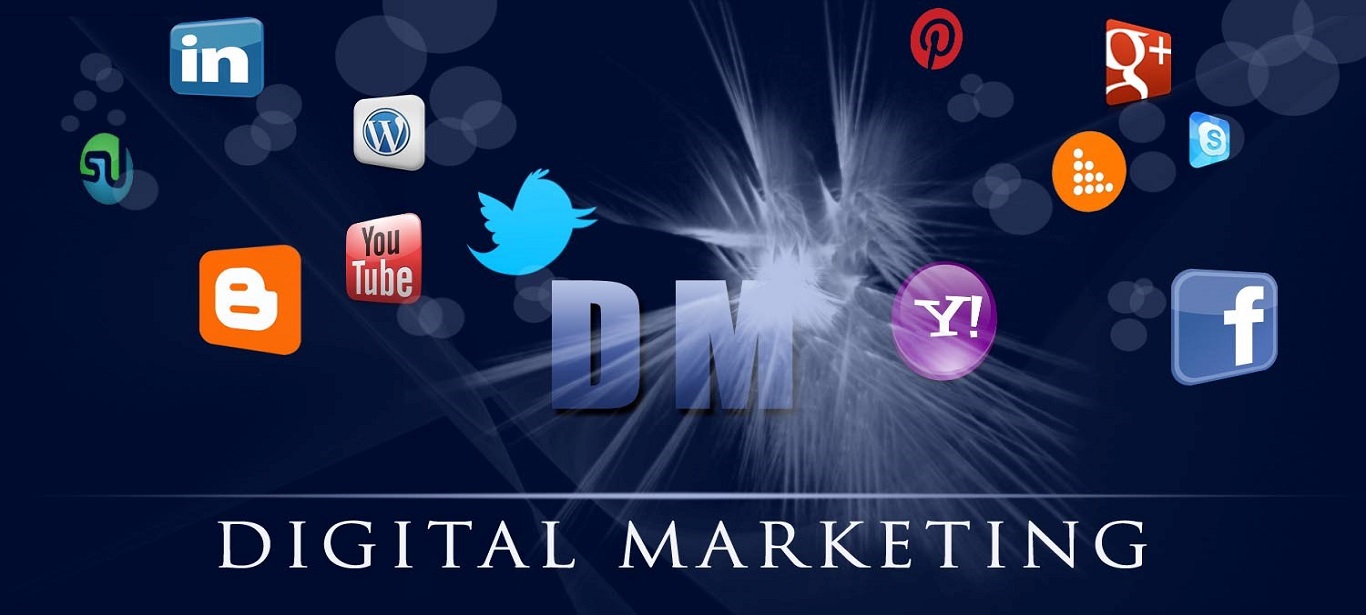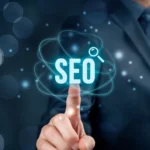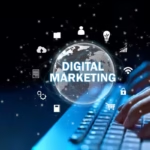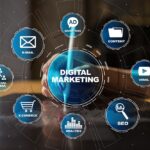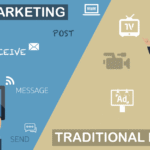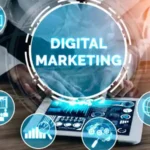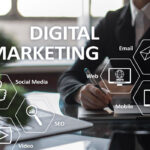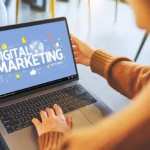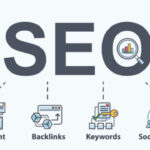Why Digital Marketing Is Key to Business Growth 2025
In 2025, the digital world has become an essential space for communication, connection, and commerce. As the internet continues to evolve, businesses regardless of their size or industry must understand the necessity of digital marketing. It is no longer a choice but a strategic requirement to stay relevant, visible, and competitive.
This blog explores why digital marketing is crucial for every business in 2025, how it supports growth, and the key components that make it effective in the modern digital landscape.
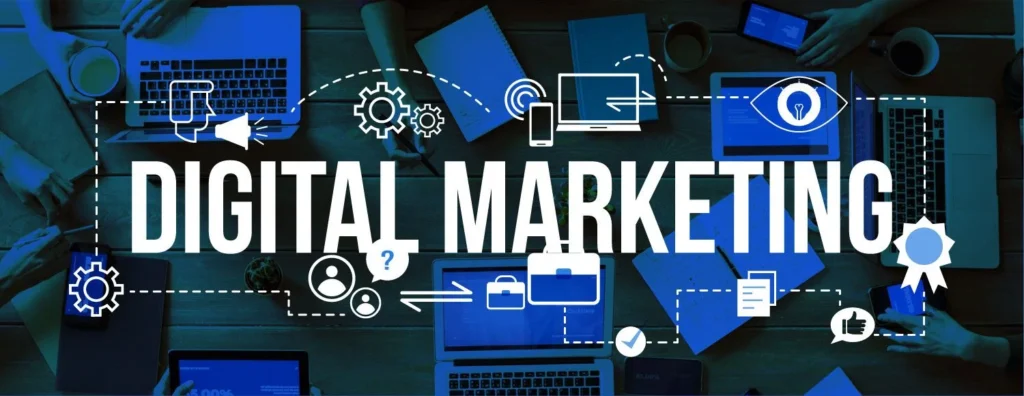
The Digital Shift: Understanding Today’s Business Environment
Technology and consumer behavior have shifted drastically. People are now more connected through smartphones, smart TVs, tablets, and wearable tech than ever before. The average consumer searches online before making decisions, reads reviews, watches product demos, and compares services all through digital platforms.
Key Statistics
| Area | 2025 Trends |
| Internet Users Worldwide | Over 5.5 billion active users |
| Daily Social Media Use | 2.5+ hours per person on average |
| Mobile Search Volume | Over 65% of global searches happen on mobile devices |
| Video Content Engagement | 85% higher than text-based content |
Core Benefits of Digital Marketing for Businesses
1. Enhanced Online Visibility
Being discoverable online is the first step toward attracting potential customers. Digital marketing helps businesses appear in search results, on social media feeds, and in emails exactly where people are looking.
Key Channels for Visibility:
- Search engines (Google, Bing)
- Social media platforms
- Business directories
- Email newsletters
2. Precise Audience Targeting
Unlike traditional methods, digital marketing allows businesses to target users based on demographics, interests, behaviors, location, and more. This ensures marketing efforts reach the right audience, increasing engagement.
Examples of Targeting Methods:
- Search engine targeting using keywords
- Social media interest-based targeting
- Retargeting previous website visitors
3. Real-Time Performance Tracking
Digital marketing offers accurate data on campaign performance. Businesses can measure what’s working, what isn’t, and optimize campaigns instantly.
Metrics to Track:
- Website traffic
- Click-through rate (CTR)
- Conversion rate
- Engagement (likes, shares, comments)
4. Stronger Customer Engagement
Interacting with customers in real time is possible through comment sections, live chats, polls, and Q&A sessions. Businesses can build trust by providing timely and helpful responses.
Effective Engagement Strategies:
- Hosting webinars
- Replying to comments and reviews
- Creating interactive content (polls, quizzes)
5. Brand Reputation Management
In the digital age, reputation can change overnight. With digital marketing, businesses can proactively manage their brand image, respond to feedback, and showcase positive stories.
Essential Components of Digital Marketing in 2025
To build an effective digital presence in 2025, businesses must focus on integrated and user first strategies. Here are the most essential components:
1. Search Engine Optimization (SEO)
SEO improves your website’s ranking in search engine results. A well-optimized site is more likely to be visited and trusted by users.
Modern SEO Practices:
- Using user-friendly keywords
- Optimizing for mobile
- Fast page loading speed
- High-quality content with clear value
2. Content Marketing
Creating useful and relevant content helps businesses educate and connect with their audience. Quality content builds authority and encourages loyalty.
Effective Content Types:
- Blogs
- Infographics
- Video explainers
- Case studies
3. Social Media Marketing
People spend a significant portion of their day on social media. Businesses can use platforms like Instagram, LinkedIn, Facebook, and TikTok to share content, engage followers, and drive traffic.
Current Trends:
- Short-form videos
- Story-based content
- User-generated content (UGC)
- Influencer collaboration
4. Email Marketing
Email remains one of the highest-performing digital marketing channels. It is excellent for sharing updates, offers, and educational content directly with interested users.
Best Practices:
- Personalized subject lines
- Clear call-to-action (CTA)
- Mobile-optimized designs
- Regular but non-intrusive frequency
5. Video Marketing
Video content dominates digital platforms. Whether it’s a product demo, behind-the-scenes look, or a customer testimonial, video is a powerful storytelling tool.
Why It Works:
- Easier to understand
- More engaging than text
- Appeals to mobile users
- Boosts SEO rankings
Why Delaying Digital Marketing is Risky in 2025
Failing to invest in digital marketing can result in lost opportunities and poor visibility. Businesses that ignore digital trends often face these challenges:
- Reduced online presence
- Lack of customer trust
- Fewer leads and engagement
- Limited brand awareness
- Falling behind competitors
Industries That Benefit Most from Digital Marketing
Although every business needs digital marketing, certain industries are seeing especially high returns in 2025:
| Industry | Reason for Digital Importance |
| Healthcare | Online appointments, health information, reviews |
| Education | E-learning platforms, course promotion |
| Retail | E-commerce growth, product search behavior |
| Hospitality | Booking engines, guest reviews, travel inspiration |
| Tech & IT Services | Service explanation, demo videos, lead generation |
| Fitness & Wellness | Online programs, influencer content, health tips |
Frequently Asked Questions (FAQs)
Q1. Is digital marketing only for online businesses?
No. Even physical or local businesses benefit from digital marketing by reaching more customers, improving reputation, and staying competitive.
Q2. How often should a business post on social media?
Consistency is more important than frequency. Posting 3–5 times a week with valuable content is generally effective.
Q3. What is the difference between SEO and paid ads?
SEO focuses on improving visibility organically over time, while paid ads bring immediate traffic through budgeted campaigns. Both can work together for stronger results.

